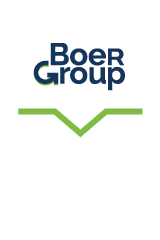Circular economy
Mission and Vision Textile Recycling today – with our network of tomorrow
As early as 2015 the United Nations set up initial guiding principles as part of their agenda 2030. 17 Sustainable Development Goals (SDGs), which 193 heads of state and governments had subscribed to at the UN summit meeting in New York, are to pursue the objective to make the world fairer, healthier, more peaceful and more social.
With our business FWS is going to exert the highest impact on these four goals under the roof of the global operating Boer Group. We thus follow the key actions of the EU textile strategy, which is designed to shape both the manufacturing and the use of textiles in a more sustainable way. In doing so we will contribute significantly for its realization and make valuable input to a positive global impact.
„We do not only lengthen the life cycle of textiles! But also even more than 60 % of textile waste are recycled by us in a way that it can be reused for its original purpose. And more than 30 % are reused as secondary raw material in new products. All of this is consciously executed in Western Europe, securing that the residual non-recycable part is added to a proper use. It is our benchmark to achieve a 100 % high-quality exploitation."

Rainer Binger COO
Boer Group
„It is no option to throw clothes which are no longer wearable into residual waste. On the contrary - the development of new innovative recycling technologies has to be fostered from all sides so that raw materials, being used in the manufacturing of textiles, can be reused. Boer Group actually does its part and supports both professionally and financially promising fibre recycling projects. Also it invests in recycling technologies. Only through the participation of all stakeholders circular economy will become a success story.“

Nicole Kösegi Business development manager
Boer Group Recycling Solutions
EU Textile Strategy
Starting with the release of the EU textile strategy in March 2022 the EU Commission depicts the current situation and communicates its vision for sustainable and recycable textiles in 2030.

- global textiles production has doubled between 2000 and 2015
- every single second truckload of textiles is landfilled or incinerated
- > 1 % of textiles waste is recycled into new fibres for clothing
- up to 35% of all the microplastics released into the environment can be traced back to textile products
- CO² s one of the top three pressures on water and land use, and the top five in terms of raw material use and greenhouse gas emissions
- the European consumption of textiles has the fourth highest impact on the environment and climate change, after food, housing and mobility
Source: Textiles_Factsheet.de / © Europäische Union
- All textile products placed on the EU market are...
- ...durable, repairable and recyclable
- ...to a great extent made of recycled fibres
- ...free of hazardous substances
- ”Fast fashion is out of fashion”
- Profitable reuse and repair services are widely available
- In a competitive, resilient and innovative textile sector producers take responsibility for their products along the value chain right up to disposal
- Circular rather than throw-away clothes have become the norm, with sufficient capacities for recycling and minimal incineration and landfilling
Source: Textiles_Factsheet.de / © Europäische Union
- Set design requirements for textiles to make them last longer, easier to repair and recycle, as well as requirements on minimum recycled content
- Introduce clearer information and a Digital Product Passport
- Tackle greenwashing to empower consumers and raise awareness about sustainable fashion
- Reverse overproduction and overconsumption, and discourage the destruction of unsold or returned textiles
- Propose mandatory Extended Producer Responsibility for textiles with eco-modulation of fees
- Address the unintentional release of microplastics from synthetic textiles
- Restrict the export of textile waste and promote sustainable textiles globally
- Incentivise circular business models, including reuse and repair sectors
- Encourage companies and Member States to support the objectives of the Strategy
To take full effect from the key actions until 2030 numerous EU directives and regulations will be revised over the next few years with significant changes to our business. FWS together with Boer Group is at the cutting edge and actively engaged in both national and international associations to accompany the legislative initiatives.
Do you want to learn more about the impact on your situation made by the changes of the legal framework, please contact us.


